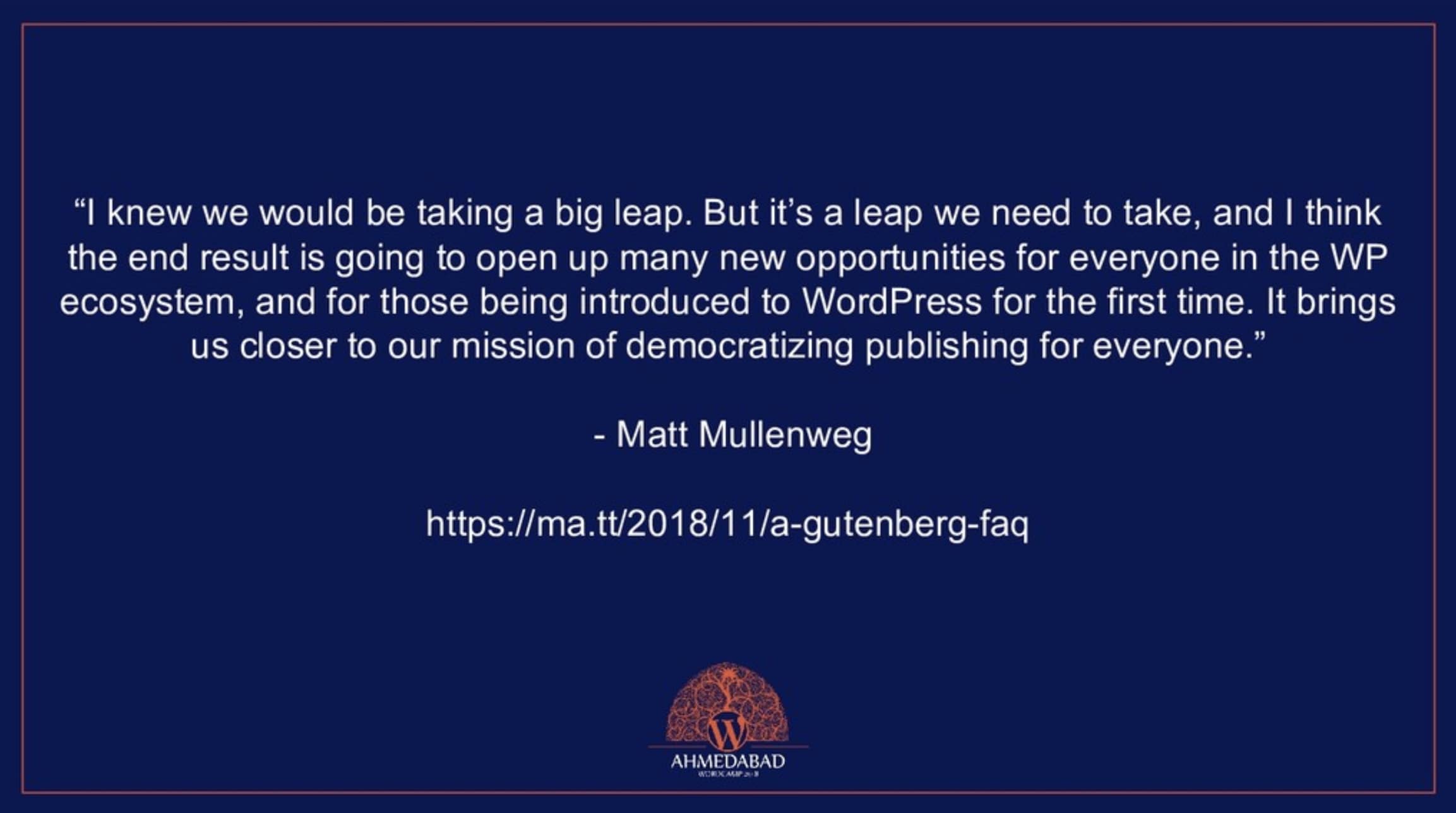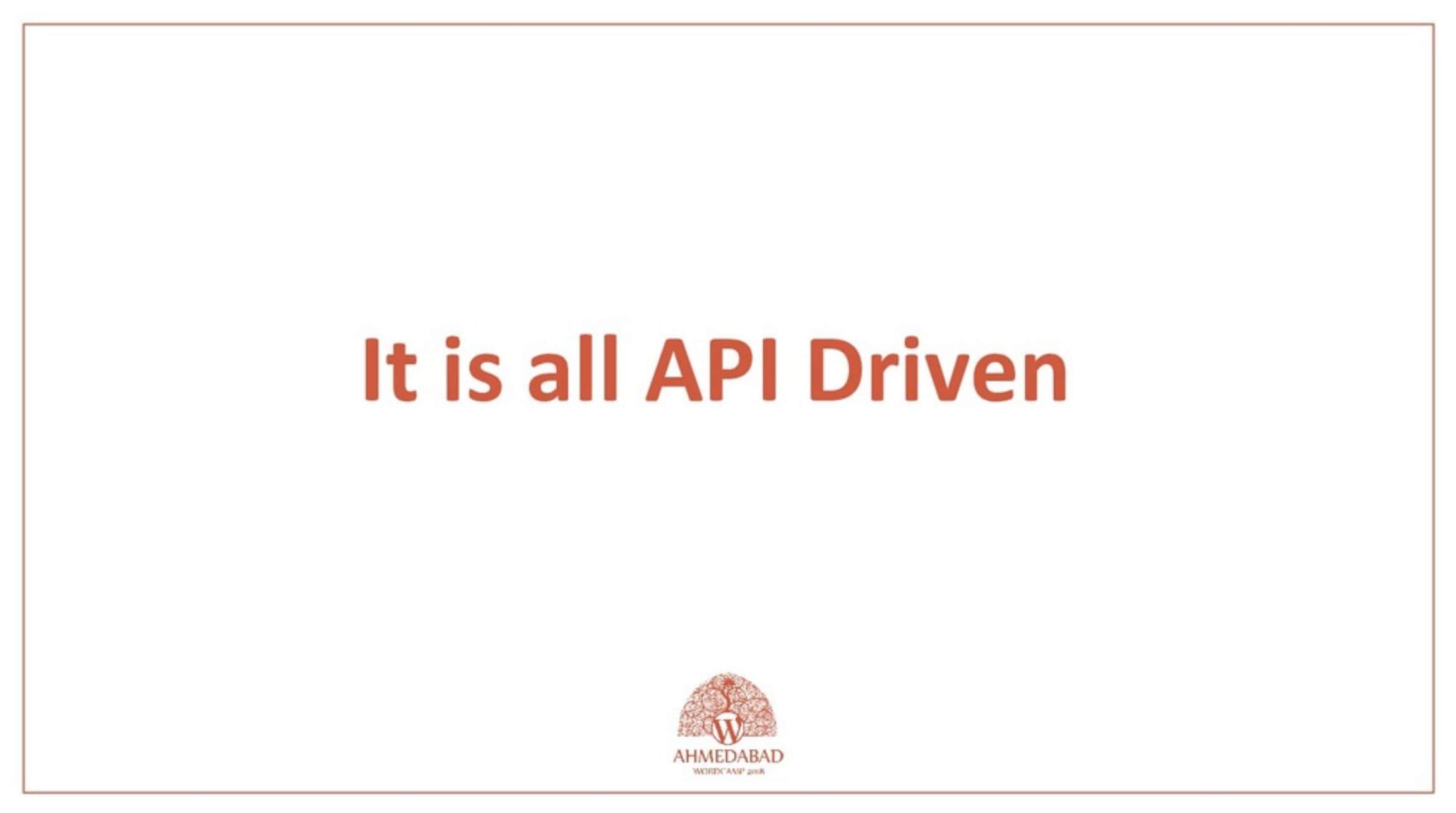Making WordPress Gutenberg Work for Your Enterprise: Challenges, Solutions & Opportunities
Learn how enterprise websites can smoothly transition to Gutenberg while turning potential challenges into growth opportunities.
Learn how enterprise websites can smoothly transition to Gutenberg while turning potential challenges into growth opportunities.

CTO & Co-founder
Aslam is the Co-Founder and CTO of Multidots Inc and loves solving complex problems through out-of-the-box approaches. Aslam has more than a decade of experience working with enterprise customers and providing WordPress based solutions. With a team of more than 100 developers, Aslam has experience working with large development teams.
In this session, Aslam Multani explores the WordPress Gutenberg editor from a business perspective. He breaks down what enterprise websites need to know about this significant change, covering everything from content workflow impacts to development considerations. The session provides practical solutions for businesses looking to adapt to Gutenberg while minimizing disruption.
Learn how Gutenberg impact on enterprise websites, from content workflow changes to development opportunities.

The limitations of WordPress's classic editor have impacted content teams for years. Gutenberg addresses these pain points with a completely rebuilt editing experience focused on intuitive content creation and management.

Gutenberg marks WordPress's shift toward modern JavaScript development. This creates opportunities for enterprises to build more dynamic, interactive content experiences while maintaining WordPress's robust backend.

Gutenberg introduces nested blocks, child blocks, dynamic blocks, templates, and flexible layouts. These features give enterprise content teams unprecedented control over page design without requiring developer support.

Specific strategies and tools are available to ensure existing enterprise content and functionality continue working smoothly after transitioning to Gutenberg. This includes methods for handling legacy shortcodes and custom post types.

Tested approaches for moving enterprise-scale content from classic editor to Gutenberg blocks while preserving formatting, functionality and SEO value. Includes specific tools and processes for content migration.

The new editor is built entirely on APIs, enabling seamless integration with existing enterprise systems and workflows. This API-first approach opens up possibilities for custom block development and automated content management.
Multidots created a new workflow where the central repository pushes data, including comments and ratings, to all connected systems. This ensures consistency across platforms while allowing for system-specific rules.
Multidots used a lean, object-based PHP script without any framework to minimize overhead on API responses and processing. This approach ensured fast performance for the central repository.
The system incorporates custom rules, allowing specific content (like Jordan-related updates) to be directed to certain apps or websites while excluding others. This flexible approach ensures targeted content distribution.
The system provides a simple, one-screen interface for data entry, automates collection of additional data points from third-party sources, and allows for quick, site-wide updates from a single location, significantly simplifying the editorial workflow.
Key challenges included managing a large dataset, ensuring communication with multiple systems beyond WordPress, automating data updates, and implementing custom rules for different content types and platforms.
The solution maintains high performance while serving over 10 million page views monthly across multiple WordPress setups. The lean architecture ensures that data updates and content delivery happen quickly across all platforms.